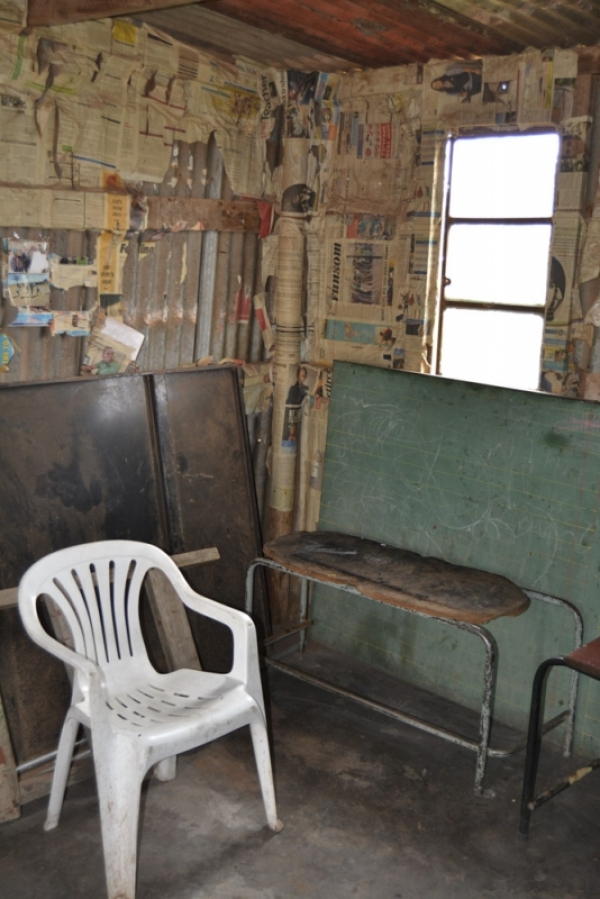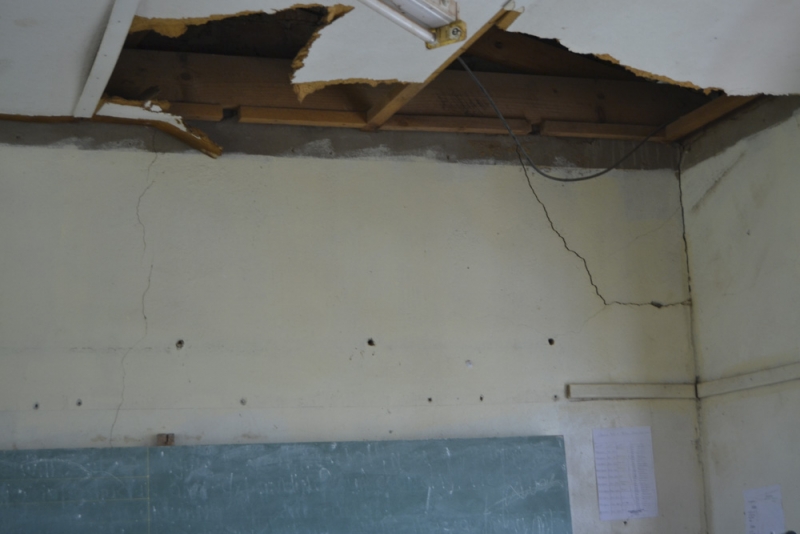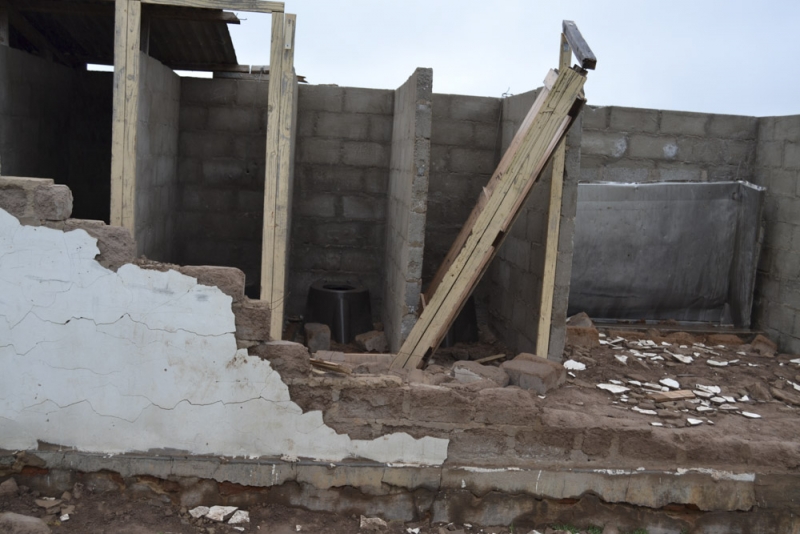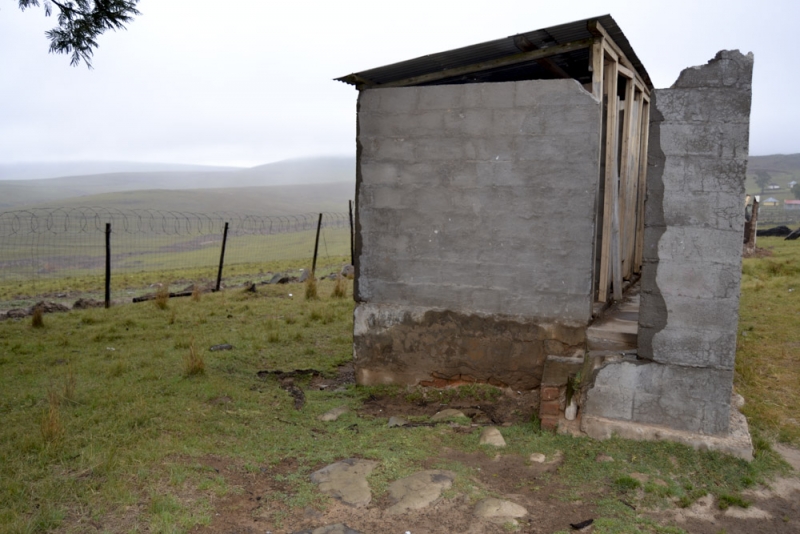

The kitchen at Mahlubini Junior Secondary School near Cofimvaba. Photo by Nombulelo Damba-Hendrik.
1 December 2015
Mahlubini Junior Secondary School near Cofimvaba has close to 300 students, no electricity in the classrooms and no running water.
The school gets water from a few rainwater tanks. But when GroundUp visited the school last week the gutters were broken and there was no water available. The only electricity in the school is in a small room which is used as a staff room, principal’s office and storeroom.
Mahlubini and nearby Mcumngco Junior Secondary School are among many schools in the Eastern Cape where students and teachers work in very difficult conditions.
Mahlubini, eight kilometres from Cofimvaba and 86 kilometres from Queenstown, was built in 1969.
Mcumngco, six kilometres from the town, was built in 1971 and completed in 1976. The 180 students share a single water tap, in the school yard, which was donated by a former student. Before that they had to use the community tap.
The pit toilets at the school are full; the walls have cracks and the doors are broken.
 Ceilings in classrooms at Mahlubini Junior Secondary School. Photo by Nombulelo Damba-Hendrik.
Ceilings in classrooms at Mahlubini Junior Secondary School. Photo by Nombulelo Damba-Hendrik.Mcumngco teachers and parents raised R124,000 this year to fix school walls and floors but the money could not stretch to new toilets.
“We had to find ways to raise the money in order to fix the school. There were cracks on walls. We asked around the community for assistance, and at least we managed to keep the school clean,” said Mcumngco Principal Lennox Maphangwana.
Vuyani Mquqwana, a teacher at Mcumngco, said, “Our fear is that one day a student will fall inside these toilets and we won’t be able to rescue the student.”
He said, “We sent a number of letters to the Eastern Cape Department of Education asking for help, but all we get is empty promises. Even now we recently sent a letter asking for toilets, and the district promised to send a construction company but the company told us that they can only fix the toilets. We asked for new toilets, not renovation of toilets. They will remain full.”
 Boys’ toilets at Mcumngco Junior Secondary School. Photo by Nombulelo Damba-Hendrik.
Boys’ toilets at Mcumngco Junior Secondary School. Photo by Nombulelo Damba-Hendrik.“We all fear that a student might fall in there,” said a teacher who did not want to be named.
The school had found someone from the community to build a small wall in front of the girls’ toilets because all the doors on six pit toilets were broken.
Men and women teachers used one staff toilet, with a broken door, he said.
When GroundUp arrived at Mahlubini, teachers were sitting in the only room with electricity, which is used as a store room, staff room and principal’s office.
“Here we fix everything by ourselves and ask the community for help,” said one teacher. “Since I started here in 2009, each year we spend thousands of rands fixing things.”
The teacher continued, “When I started here one of classrooms burned down. We asked the department for help. We got all the quotations, we asked a community member to put on a new roof but later the department told us that we must pay that person and the department would not assist us.”
Attempts to get comment from the Eastern Cape Department of Education were unsuccessful.
 The girls’ toilets at Mcumngco school. Photo by Nombulelo Damba-Hendrik.
The girls’ toilets at Mcumngco school. Photo by Nombulelo Damba-Hendrik.